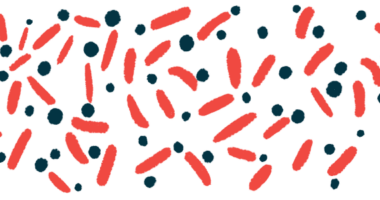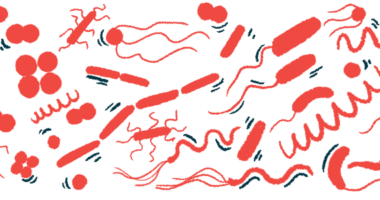SGI invests $4.5M in Phase 3 trials of ColiFin for chronic infections
COPILOT study expected to enroll first patient in June

SPRIM Global Investments (SGI) has committed $4.5 million to initiate Spexis’ Phase 3 COPILOT clinical trial to test the antibiotic ColiFin in people with cystic fibrosis (CF) who have chronic Pseudomonas aeruginosa lung infections.
The trial will test once or twice daily dosing of ColiFin (inhaled colistimethate sodium), and is expected to enroll its first patient in June. It will include a total of 38 adults and adolescents with chronic P. aeruginosa infections and moderate to severe lung function impairment.
“Building upon our recently announced clinical trial partnership, we are pleased to receive this capital commitment from SGI, which will allow us to expeditiously proceed with the initiation of our ColiFin Phase 3 development program,” Jeff Wager, MD, chairman and CEO at Spexis, the company developing ColiFin, said in a press release.
COPILOT trial will investigate dosing regimen for antibiotic ColiFin
“The COPILOT study … will be a critical trial to determine the potential for a once daily dosing regimen for ColiFin, which would offer a significantly lower treatment burden to cystic fibrosis patients in need,” Wager added.
CF is characterized by the accumulation of sticky and thick mucus in various organs, including the lungs, causing inflammation and damage. Chronic lung infections, commonly caused by P. aeruginosa, lead to lung function decline and reduced lifespan.
Treatment usually involves antibiotics, a broad class of medications that kill bacteria or prevent them from spreading. However, P. aeruginosa is often resistant to common antibiotics. The need for regular courses of therapy to manage lung infections in CF, the poor tolerance to long-term use of the antibiotic tobramycin, and the fact that CFTR modulators seem to be effective against infections in earlier-stage patients mean that ColiFin fills an unmet medical need, according to Spexis.
Spexis announced a partnership with SGI in February, expected to provide Spexis with up to half of the funding needed for ColiFin’s Phase 3 development.
Results from COPILOT will inform the design of another Phase 3 study called COPA, which will further explore ColiFin’s safety and effectiveness.
The established partnership totals $ 4.5 million in the form of secured, interest-bearing debt with partial warrant coverage. It also comprises subordinated debt mandatorily converting into equity.
“With site activations and study start-up activities ongoing, we look forward to efficiently deploying this capital to execute our COPILOT study and in parallel continue our efforts to secure the balance of financing to cover the remaining costs of the COPA trial,” Wager said.
ColiFin’s clinical development is supported by the U.S. Food and Drug Administration’s orphan drug, qualified infectious disease product, and fast-track designations.








